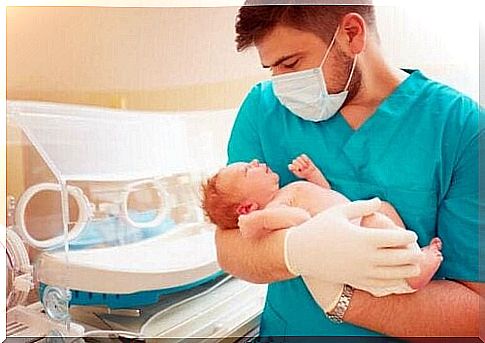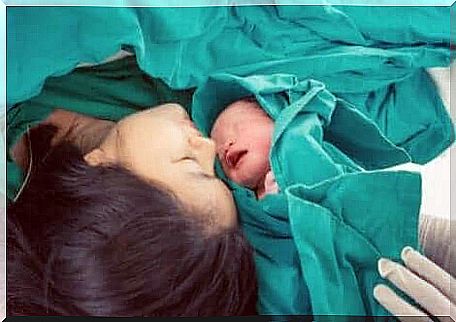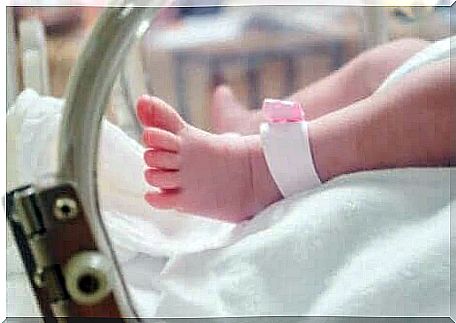How Long Should A Premature Baby Stay In The Hospital?

Parents usually have a lot of doubts about preterm birth. For example, how long should a premature baby stay in the hospital? While every baby is different and requires an individual diagnosis, there are some general guidelines.
In this article, we will talk about preterm birth and how long a premature baby should stay in the hospital. This information will help clear some of the doubts for parents who live this stage with fear and uncertainty.
preterm birth
According to the World Health Organization (WHO), “premature birth” is defined as babies born alive before the 37 weeks of pregnancy have passed. This can have short- and long-term adverse effects on the baby’s health, as there is a high risk of neonatal death.
Here are some of the factors associated with preterm birth:
- anemia
- high catecholamine levels in maternal urine
- tobacco use
- premature rupture of membranes (PRM)
- arterial hypertension (AHT)
- vaginal bleeding
- urinary tract infections
- lack of prenatal or inadequate care
- if the mother is younger than 20 or older than 35 years
- low amniotic fluid (oligohydramnios)
- history of abortion provocatus
- preeclampsia
- twin pregnancy
A premature baby in the hospital

Medical care is essential for the health and survival of the preterm baby, as evidenced by the different resource statistics of each country. What kind of care is needed exactly?
- First, immediate breastfeeding and nutritional support.
- Maintenance of the incubator to ensure thermal equilibrium and minimize the risk of infection.
- Hygienic care is also required for the umbilical cord and the skin of the baby.
- Help with breathing or CPR, if needed.
- Finally, immediate treatment in case of complications (such as infections or jaundice).
Thanks to medical advances, there are now several techniques that facilitate the bond between parents and newborns. One such technique is Kangaroo Mother Care, which we will discuss in detail below.
Kangaroo Mother Care
Kangaroo Maternal Care is a technique for preterm newborns based on skin-to-skin contact with the mother and all she can offer:
- nutrition (exclusive breastfeeding if possible)
- stimulation
- protection
The father or another adult can do it too.
With this technique, despite the baby being in the hospital, the doctors can achieve a much more humane and natural treatment of a premature baby.
The need for warmth, nourishment and protection is fulfilled, as are the affective needs (security and love). At the same time, the parents develop an emotional bond with their baby.
Kangaroo Mother Care can help shorten hospital stays. In fact, at home discharge, parents can continue this technique depending on the baby’s progress, but almost always with outpatient follow-up for as long as needed.
How long should a premature baby stay in the hospital?

First of all, it should be noted that the time the parents spend in the hospital can feel like an eternity to them, no matter how short it is.
After the initial shock of a premature birth, their day to day difficulties and impatience pile up. However, they should understand that the hospital is the best place for their baby at this stage.
Many factors will determine how long a premature baby stays in the hospital. These include the ability to breathe and eat, the baby’s temperature, and weight gain.
In this regard, 2300 grams is a standard reference for the weight that the newborn must reach to be discharged. Most babies reach this milestone after two to four weeks.
Basically, in order for a premature baby to go home, they must:
- manage to maintain a stable temperature without an incubator for one or two days
- tubeless feeding, either through breast or bottle feeding
- need to gain regular weight until they weigh 2300 grams
Now you know a little more about preterm birth and the care a premature baby needs. However, remember that every baby is unique and its evolution will depend on many factors. So the most important thing is that they always get all the help they need, both physically and emotionally.








